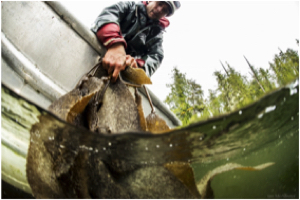Putting resilience into practice has been limited by the availability of tools that are directly linked to theory. In a recent paper published in Ecology & Society "Measuring social-ecological resilience reveals opportunities for transforming environmental governance", Anne Salomon and colleagues describe a method in which seven principles of resilience are translated into ecological and social metrics specific to a coupled human-ocean system on the northwest coast of Canada. Expert knowledge was used to assess how the metrics changed over time through three sequential governance periods.
Pacific herring have been harvested and traded by indigenous people in Canada for thousands of years. Yet, the future of herring and traditional harvest practices are directly tied to the resilience of the entire social-ecological system, including its capacity to adapt and transform in response to changing ocean conditions, social values, international markets and shifting governance practices.
Salomon and colleagues found a significant decline in system-wide resilience but also more recent signs of recovery that suggest the potential for transformation in Canadian fisheries governance. The quantitative approach to assessing resilience in this system allowed the researchers to pinpoint the erosion and recovery of specific system attributes and shed light on strategic pathways for enabling transformation of the Pacific herring system toward a more ecologically sustainable and social just future.
Reference:
Salomon, A. K., A. E. Quinlan, G. H. Pang, D. K. Okamoto, and L. Vazquez-Vera. 2019. Measuring social-ecological resilience reveals opportunities for transforming environmental governance. Ecology and Society24(3):16.
https://doi.org/10.5751/ES-11044-240316
Photo credit: I. McAllister

Keywords: measuring resilience, Pacific herring, fisheries, principles, quantifying resilience